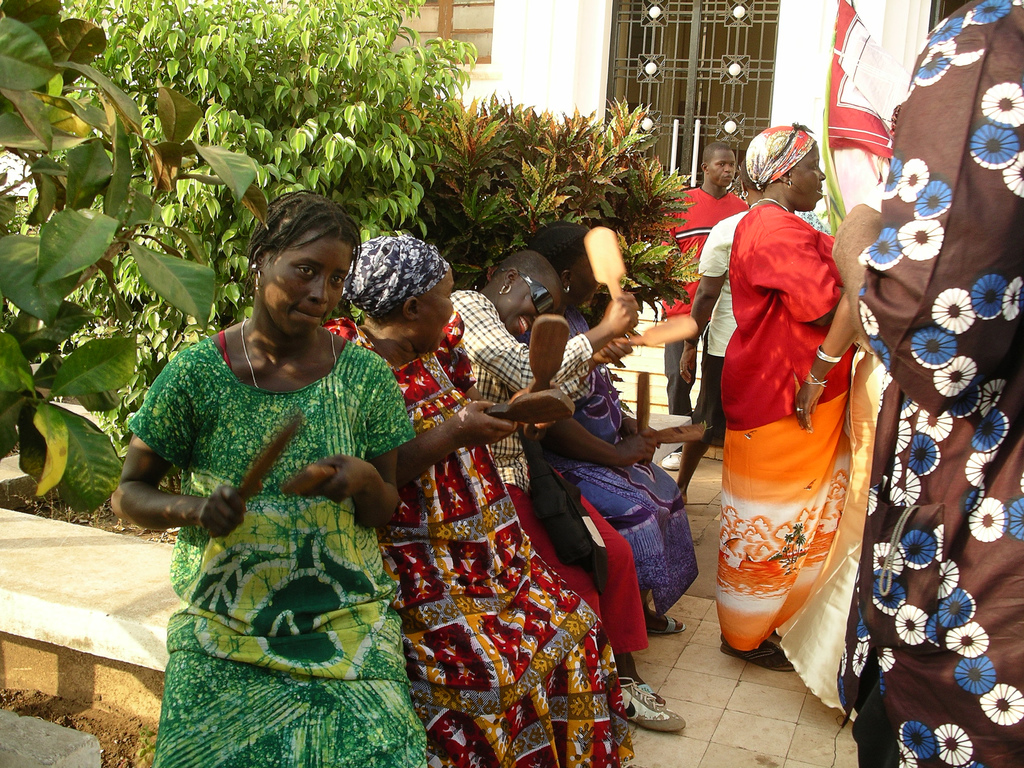If you walk a little in Bissau, before the hot sun disappears behind the mango trees, and head into the bairros, you are almost bound to stumble upon a small backyard where fifty or so people have gathered to hear music. A group of women will be sitting in a circle, boys and girls around them. In the centre stands a big bucket filled with water and in it a calabash turned upside down. A boy slides one palm over the surface of the calabash, the other hand slaps it; the sound given off is like an early disco rhythm box. Soon, other calabashes are being played with wooden objects, spoons and other instruments resembling cooking implements.
At a certain point the tempo of spoons and wood is about eighty beats per minute, as if people are waiting for something. And they are. A girl jumps into the circle and all at once, in time with her dancing – hands low, knees high – the wood musicians double their speed and the spoon-players treble their pace. And what do they sing about? They sing about cars they will never own. They make jokes about the owner of the newest Nissan Patrol (“The chef will have to wait like us when the station has run out of gas, both his Nissan and his Patrol!”). They sing about their hard life and about Amílcar Cabral and the Tuga, the former Portuguese rulers. They sing love stories their grandparents sang, and they sing about the irão – mysterious forces found in trees, water, stones and in certain individuals. They sing about their daily struggles, money problems and AIDS. They know all the songs by heart and have no need to rehearse. The rhythm will change while the beat keeps steady. Occasionally, a worn-out guitar will add some chords the player has heard outside a disco where he hangs around at night – without money to pay the entrada. And whatever they’re singing about, there’s always fun in gumbe music.
When they’re in town, those few musicians who have a more or less professional status, will come and sit down at the outskirts of the circle and fit in with what is happening. Of course, when there’s electricity, they plug in. And they’ll add some lyrics about the thirty-five-storey buildings they have seen abroad.
Header image: Flickr







